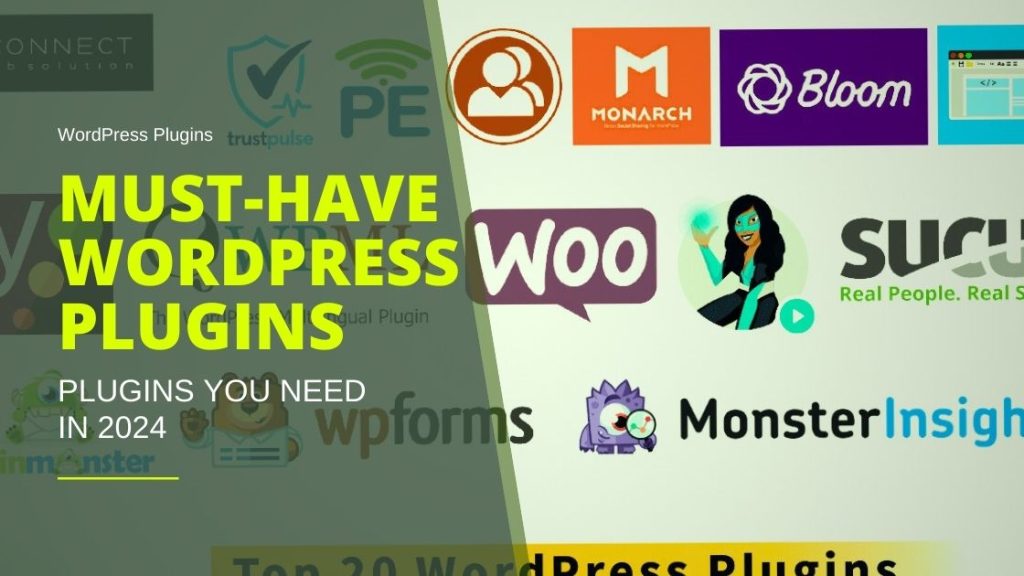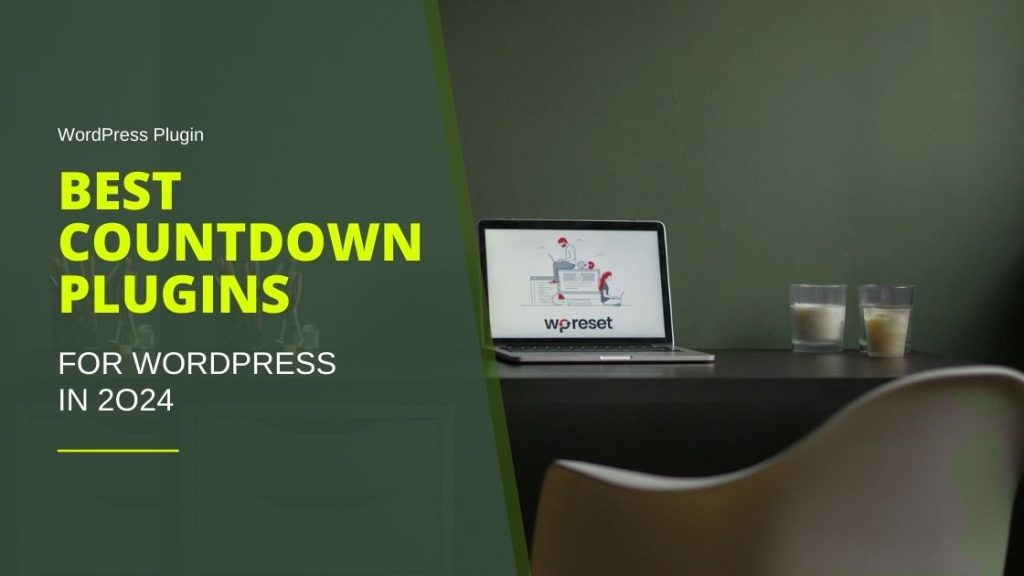WordPress powers over 40% of the web today, making it the most popular content management system.
Table of Contents
One of its most powerful features is the flexibility offered by its plugins—small add-ons that can supercharge your site’s functionality without writing a single line of code.
Whether you’re looking to improve SEO, boost performance, enhance security, or create stunning designs, the right plugins can transform your website from average to extraordinary.
But with over 60,000 plugins available, how do you choose the best ones for your website in 2024?
This guide will walk you through the must-have WordPress plugins across several categories to help you run a secure, high-performing, and user-friendly website.
From essential SEO tools to powerful security features, we’ll cover the plugins that make a real difference and improve your website’s performance and ranking.
Why the Best WordPress Plugins Are Key to Success in 2024
WordPress plugins have become indispensable for anyone running a website on the platform.
With the right combination of plugins, you can enhance nearly every aspect of your website—from SEO and security to performance and user experience.
In 2024, the digital landscape is more competitive than ever. Websites need to be faster, more secure, and more engaging to stand out. This is where WordPress plugins shine.
They offer robust solutions without requiring you to be a developer, giving even beginners the ability to create professional-grade websites. But with great power comes responsibility:
installing too many plugins can slow down your site, cause compatibility issues, and even lead to security vulnerabilities.
WordPress in Numbers:
- As of 2024, WordPress powers over 43% of websites worldwide.
- There are over 60,000 plugins available in the WordPress repository.
- Plugins contribute significantly to WordPress’s flexibility, making it the go-to CMS for all types of websites.
How Plugins Improve Functionality Without Technical Knowledge
With WordPress plugins, you can implement advanced functionality in minutes. Whether you want to optimize your site for search engines, integrate e-commerce, or improve your site’s security, there’s likely a plugin for that.
This ability to add new features without having to write code is what makes WordPress plugins so popular.
However, finding the right balance between the plugins you need and your site’s performance is critical.
Too many plugins, or poorly coded ones, can slow down your website or create conflicts that lead to technical problems.
In this guide, we’ll help you navigate the top plugins that provide maximum benefits without sacrificing speed or security.
Top Plugins by Category
1. SEO Plugins
If you want your WordPress website to rank higher in search results, an SEO plugin is a must-have. In 2024, SEO remains crucial for driving organic traffic, and WordPress has several plugins that make on-site optimization a breeze.
Yoast SEO
Yoast SEO has been the go-to plugin for WordPress users for years, and it’s still one of the best. This plugin helps you optimize your content for search engines with easy-to-follow instructions for improving keyword usage, readability, and metadata.
- Key Features:
- Real-time content analysis for SEO and readability.
- Customizable meta descriptions and titles for each post.
- XML sitemap generation to help search engines crawl your site.
Yoast also helps you manage social media previews, making sure your content looks great when shared on platforms like Facebook and Twitter.
Rank Math
Rank Math is a newer contender but has quickly gained popularity due to its comprehensive features and user-friendly interface. It’s a powerful alternative to Yoast, offering advanced SEO tools right out of the box.
- Key Features:
- Built-in integration with Google Analytics and Google Search Console.
- Rich snippet support, including FAQ and How-To schema.
- 404 error monitoring and redirection management.
Rank Math is particularly useful for users who want more detailed control over their SEO, including features for optimizing WooCommerce products and local SEO.
2. Security Plugins
Securing your WordPress site is a top priority in 2024. With the increasing number of cyber threats, it’s essential to protect your website from hackers, malware, and other vulnerabilities.
WordPress security plugins offer robust protection features, even if you’re not a security expert.
Wordfence Security
Wordfence is one of the most comprehensive security plugins available. It provides a firewall, malware scanner, and real-time monitoring to keep your site safe from threats.
- Key Features:
- Web application firewall (WAF) to block malicious traffic.
- Malware scanning for vulnerabilities, backdoors, and malicious code.
- Login security with two-factor authentication (2FA) and CAPTCHA.
Wordfence is ideal for users looking for an all-in-one security solution, offering both free and premium versions.
Sucuri Security
Sucuri is another highly regarded WordPress security plugin that focuses on website integrity and performance. Sucuri offers strong firewall protection and scans your site for malware and other vulnerabilities.
- Key Features:
- Continuous malware scanning and security activity auditing.
- Security notifications and post-hack recovery options.
- Firewall protection that blocks harmful traffic before it reaches your site.
Sucuri is particularly useful if you want a lightweight security plugin that offers strong protection without affecting your site’s performance.
3. Performance Plugins
A fast-loading website is crucial for user experience and SEO in 2024. Slow sites not only frustrate visitors but also rank lower on Google. Performance plugins help you speed up your site by optimizing images, enabling caching, and reducing the size of files.
WP Rocket
WP Rocket is a premium caching plugin that is known for its simplicity and effectiveness. It improves site speed without requiring complex configuration, making it ideal for users of all skill levels.
- Key Features:
- Page caching to improve load times.
- Browser caching and GZIP compression for better performance.
- Database optimization to keep your site running smoothly.
WP Rocket also integrates with popular CDNs (Content Delivery Networks) to further boost site speed, making it a comprehensive solution for performance optimization.
Smush
Smush is the go-to plugin for image optimization. It compresses images without sacrificing quality, helping your site load faster and reducing the amount of bandwidth used.
- Key Features:
- Lossless image compression to reduce file sizes.
- Bulk optimization for existing images.
- Lazy loading to improve initial page load speed.
Images are often one of the biggest factors affecting a site’s performance, so using Smush alongside a caching plugin like WP Rocket can dramatically improve your site speed.
4. Marketing Plugins
Marketing is key to driving traffic, converting visitors, and growing your business. WordPress marketing plugins can help you capture leads, run email campaigns, and analyze user behavior.
OptinMonster
OptinMonster is one of the most powerful lead generation plugins available for WordPress. It helps you create effective popups, floating bars, and other opt-in forms to grow your email list and convert visitors into subscribers or customers.
- Key Features:
- Drag-and-drop form builder for creating customized lead forms.
- Exit-intent technology to capture users before they leave your site.
- Advanced targeting rules for displaying forms based on user behavior.
OptinMonster is great for boosting conversions without being overly intrusive. It’s ideal for those looking to increase their email subscribers or sales leads.
MonsterInsights
MonsterInsights is a Google Analytics plugin for WordPress that gives you powerful insights into how visitors interact with your site. It allows you to track user behavior, popular pages, and conversion rates directly from your WordPress dashboard.
- Key Features:
- Easy integration with Google Analytics for real-time data.
- E-commerce tracking to see how visitors interact with your online store.
- Custom reports showing top traffic sources, page views, and conversion rates.
MonsterInsights is perfect for marketers who want to make data-driven decisions and improve their website’s performance based on visitor analytics.
5. Design Plugins
Creating a visually appealing website without coding knowledge is easier than ever, thanks to design plugins. These plugins give you the tools to customize layouts, add engaging elements, and design a professional-looking site.
Elementor
Elementor is one of the most popular page builders for WordPress, allowing users to create custom designs using a drag-and-drop interface. It’s highly flexible, making it easy to build beautiful pages without any coding.
- Key Features:
- Drag-and-drop editor with real-time previews.
- Pre-built templates and blocks to speed up design.
- Integration with other plugins, including WooCommerce, to customize product pages.
Elementor is ideal for users who want complete control over their website’s design, with options to tweak every detail for a professional finish.
WPBakery Page Builder
WPBakery is another widely used page builder that gives you full control over your site’s appearance. Like Elementor, it uses a visual editor, allowing you to design pages directly from the front end.
- Key Features:
- Backend and frontend editing for more flexibility.
- Customizable pre-designed templates and elements.
- Compatibility with various themes and plugins for seamless integration.
Both Elementor and WPBakery cater to different design preferences, but both make it possible to create stunning websites without hiring a developer.
How to Choose the Right Plugins for Your Website
With so many plugins available, it’s important to choose the right ones that fit your website’s needs while keeping it fast and secure.
Installing too many plugins or choosing poorly maintained ones can lead to issues like slow load times and security vulnerabilities. Here’s how to make smart plugin decisions:
1. Prioritize Essential Features
Start by identifying the key functionalities your website needs. Do you need SEO tools, performance optimization, security, or lead generation?
Stick to plugins that fulfill these core needs. Avoid installing plugins that offer features you won’t use, as they may unnecessarily bloat your site.
2. Check Compatibility and Support
Before installing any plugin, make sure it’s compatible with your version of WordPress and other plugins you’re using.
Look for plugins that are regularly updated and have active support from the developer. Check reviews and the plugin’s update history to ensure reliability.
3. Avoid Plugin Bloat
Using too many plugins can slow down your website, especially if they perform similar functions or are poorly coded.
Aim to install only the most necessary plugins. If a single plugin can handle multiple tasks (like Rank Math for SEO), opt for that instead of installing several different ones.
4. Test for Performance Impact
After installing a plugin, test your website’s performance to ensure it doesn’t significantly slow down your load time.
Use tools like Google PageSpeed Insights or GTmetrix to measure your site’s speed before and after adding a new plugin.
Conclusion
In 2024, leveraging the right WordPress plugins is essential for creating a successful website. From enhancing SEO and security to improving performance and design, the plugins you choose can significantly impact your site’s effectiveness and user experience.
By carefully selecting essential plugins and following best practices, you can ensure your website remains fast, secure, and user-friendly. Remember to keep an eye on updates and new features as the digital landscape evolves.
Make sure to revisit this guide as you explore additional plugins and tools to enhance your WordPress site. Happy building!
1. How many plugins should I install on my WordPress site?
While there’s no strict limit, it’s generally best to keep the number of plugins to a minimum—only install those that add essential functionality. Aim for quality over quantity to avoid slowing down your site.
2. Are free plugins reliable?
Many free plugins are reliable and well-maintained. However, always check user reviews, the number of active installations, and the plugin’s update frequency. For critical functionalities, consider investing in premium plugins that offer more features and support.
3. How can I check if a plugin slows down my site?
You can use performance testing tools like Google PageSpeed Insights or GTmetrix to analyze your site’s speed. Run tests before and after installing a plugin to see if it has a significant impact on load times.
4. What should I do if a plugin causes issues on my site?
If a plugin causes problems, deactivate it immediately. Check for conflicts with other plugins or your theme. If the issue persists, consider reaching out to the plugin’s support for assistance or look for an alternative plugin.






